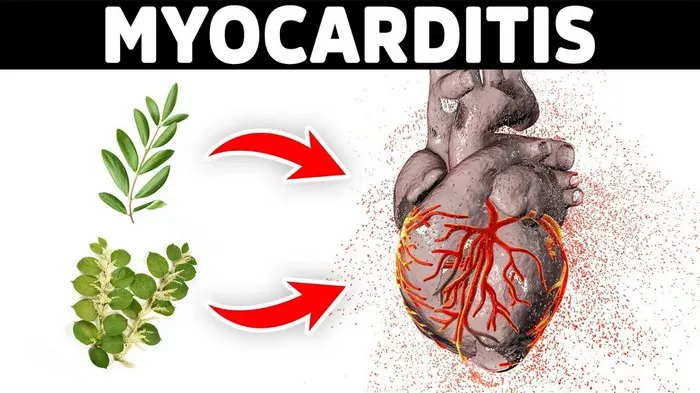Myocarditis, an inflammation of the heart muscle (myocardium), is a condition that can significantly impact heart function.
It is often caused by viral infections, though it can also be a result of bacterial infections, autoimmune diseases, toxins, and other factors. One of the critical concerns for patients and healthcare providers is whether myocarditis can lead to high blood pressure (hypertension). This article delves into the relationship between myocarditis and blood pressure, examining the mechanisms, clinical implications, and potential treatment strategies.
Causes And Symptoms of Myocarditis
Myocarditis can arise from various etiologies. Viral infections are the most common cause, with agents such as the Coxsackievirus, adenovirus, and the recently prominent SARS-CoV-2 (responsible for COVID-19) being frequent culprits. Other causes include:
Bacterial infections: Lyme disease, diphtheria
Autoimmune diseases: Lupus, rheumatoid arthritis
Toxins: Alcohol, drugs, environmental toxins
Other factors: Radiation, certain medications
Symptoms of myocarditis can range from mild to severe and may include chest pain, fatigue, shortness of breath, and arrhythmias. In severe cases, it can lead to heart failure or sudden cardiac death.
See Also: Does Myocarditis Cause Chest Pain
Blood Pressure Regulation And Its Importance
Blood pressure is the force exerted by circulating blood on the walls of blood vessels. It is a critical parameter for maintaining adequate blood flow to organs and tissues. Blood pressure is regulated by multiple factors, including:
Heart rate and contractility: The heart’s pumping action
Vascular tone: The constriction or dilation of blood vessels
Blood volume: The amount of circulating blood
Neurohormonal factors: Hormones such as adrenaline and angiotensin
Normal blood pressure is vital for ensuring that organs receive sufficient oxygen and nutrients. Both high blood pressure (hypertension) and low blood pressure (hypotension) can have detrimental effects on health.
Mechanisms Linking Myocarditis And Blood Pressure
Myocarditis primarily affects the heart muscle, but its influence can extend to blood pressure regulation through several mechanisms:
Impaired Heart Function: Myocarditis can weaken the heart muscle, reducing its ability to pump blood effectively. This can lead to a compensatory increase in heart rate and vascular resistance to maintain adequate blood flow, potentially raising blood pressure.
Inflammation and Neurohormonal Activation: The inflammatory process in myocarditis can activate the sympathetic nervous system and the renin-angiotensin-aldosterone system (RAAS). These systems increase heart rate, contractility, and vascular tone, contributing to higher blood pressure.
Fluid Retention: In severe myocarditis, the heart’s reduced pumping capacity can lead to fluid buildup in the body (congestive heart failure).
The resulting increase in blood volume can raise blood pressure.
Secondary Hypertension: Myocarditis can sometimes cause secondary hypertension, particularly if it affects the kidneys or stimulates neurohormonal systems that regulate blood pressure.
Clinical Evidence And Studies
Research on the direct relationship between myocarditis and hypertension is limited, but several studies provide insights into how myocarditis can influence blood pressure:
Heart Failure and Hypertension: Studies have shown that patients with myocarditis who develop heart failure often exhibit elevated blood pressure as a compensatory mechanism. This is particularly evident in cases where myocarditis leads to dilated cardiomyopathy, a condition characterized by an enlarged and weakened heart.
Inflammatory Markers and Blood Pressure: Elevated levels of inflammatory markers, such as C-reactive protein (CRP) and interleukin-6 (IL-6), have been associated with increased blood pressure in myocarditis patients. These markers indicate ongoing inflammation, which can stimulate neurohormonal pathways that raise blood pressure.
Case Reports: Individual case reports have documented instances where patients with myocarditis presented with high blood pressure, particularly in the acute phase of the illness. These reports highlight the variability in clinical presentation and the potential for hypertension to develop in response to myocardial inflammation.
Management of Blood Pressure in Myocarditis Patients
Monitoring and Diagnosis
For patients with myocarditis, regular monitoring of blood pressure is essential. This includes:
Blood Pressure Measurements: Frequent checks to detect any changes or trends in blood pressure.
Electrocardiograms (ECG): To monitor heart rhythm and detect arrhythmias that could affect blood pressure.
Echocardiography: To assess heart function and identify any structural changes that might influence blood pressure.
Biomarker Testing: Measuring levels of inflammatory markers and neurohormonal factors.
Treatment Strategies
Managing blood pressure in patients with myocarditis involves a comprehensive approach:
Addressing the Underlying Cause: Treatment should focus on resolving the underlying cause of myocarditis, such as antiviral or antibacterial therapy for infections or immunosuppressive therapy for autoimmune conditions.
Heart Failure Management: For patients with heart failure, medications such as ACE inhibitors, beta-blockers, and diuretics can help reduce blood pressure and improve heart function.
Anti-Inflammatory Therapies: In cases where inflammation is significant, corticosteroids or other immunosuppressive agents may be used to reduce inflammation and its impact on blood pressure.
Lifestyle Modifications: Encouraging patients to adopt heart-healthy lifestyles, including a balanced diet, regular exercise, and smoking cessation, can help manage blood pressure.
Blood Pressure Medications: Antihypertensive medications may be prescribed to control high blood pressure. The choice of medication will depend on the patient’s overall condition and any concurrent heart issues.
Prognosis and Follow-Up
The prognosis for myocarditis patients varies widely, depending on the severity of the condition and the effectiveness of treatment. Some patients recover fully with no lasting effects, while others may develop chronic heart issues, including persistent high blood pressure. Regular follow-up with a cardiologist is crucial to monitor heart function and manage any ongoing blood pressure issues.
Conclusion
Myocarditis is a complex condition with significant implications for heart health. While it primarily affects the heart muscle, its impact can extend to blood pressure regulation through various mechanisms, including impaired heart function, inflammation, fluid retention, and neurohormonal activation. Clinical evidence suggests that myocarditis can indeed lead to high blood pressure, particularly in severe cases where heart failure develops.
Managing blood pressure in myocarditis patients requires a multifaceted approach, including addressing the underlying cause, treating heart failure, reducing inflammation, and using antihypertensive medications as needed. Regular monitoring and follow-up are essential to ensure optimal outcomes and prevent complications.

